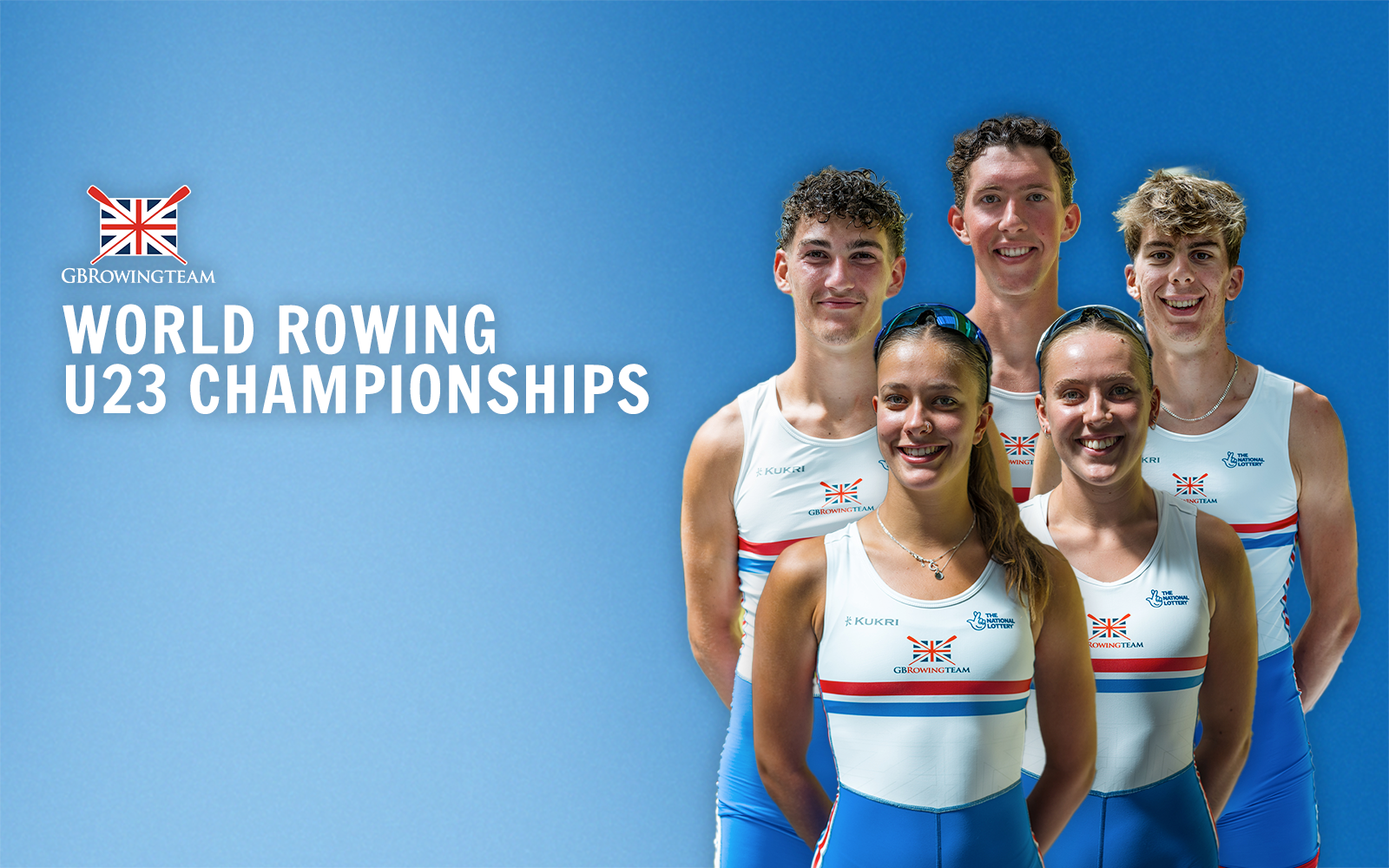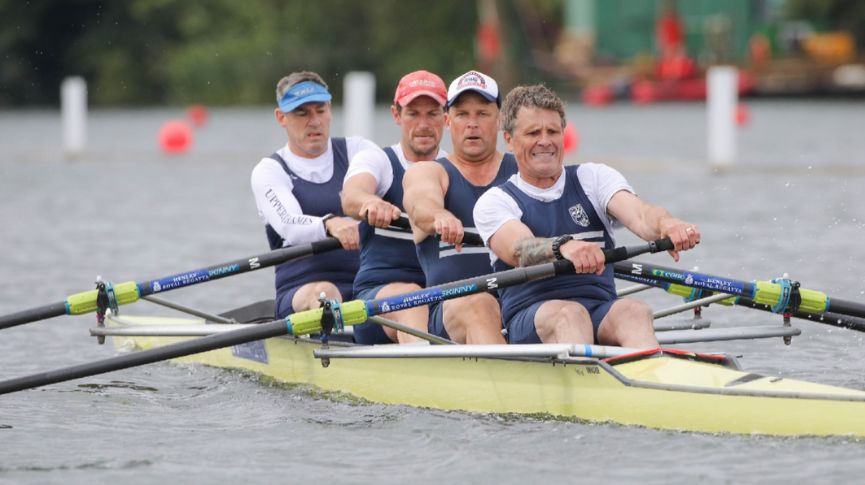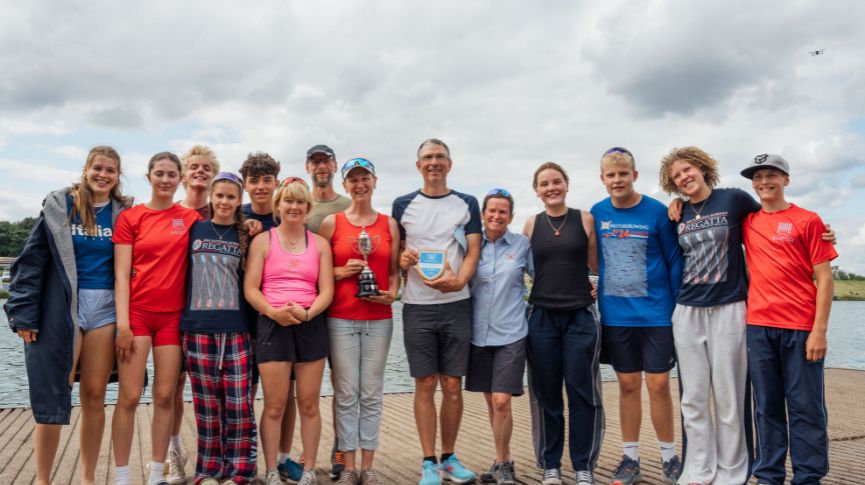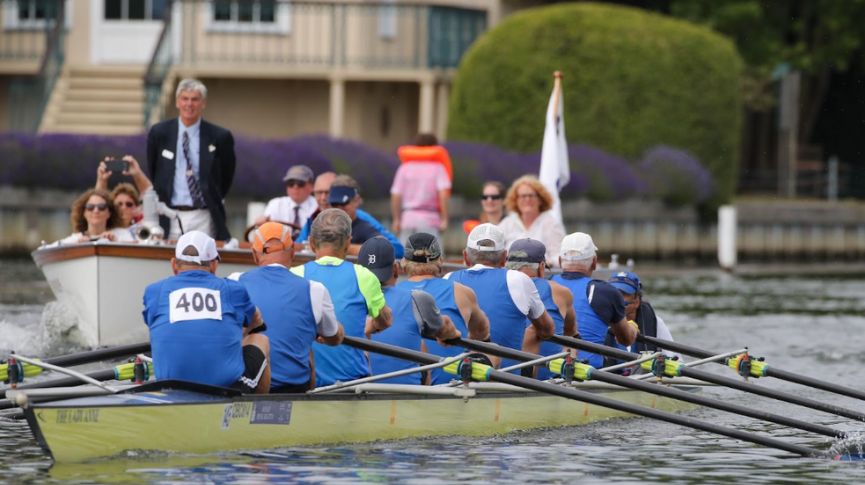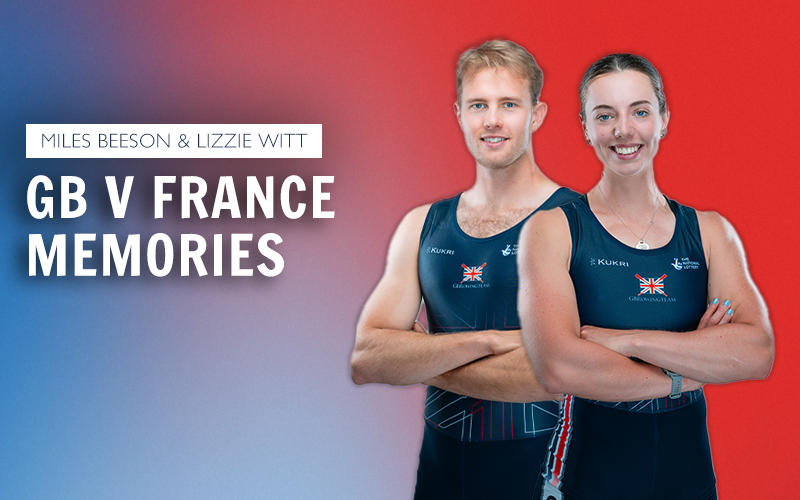GB rowers’ success in Fantasy World Cup
World Rowing’s Fantasy World Cup has replaced the real Rowing World Cups this season – so how did GB do? Over to Daniel Spring…
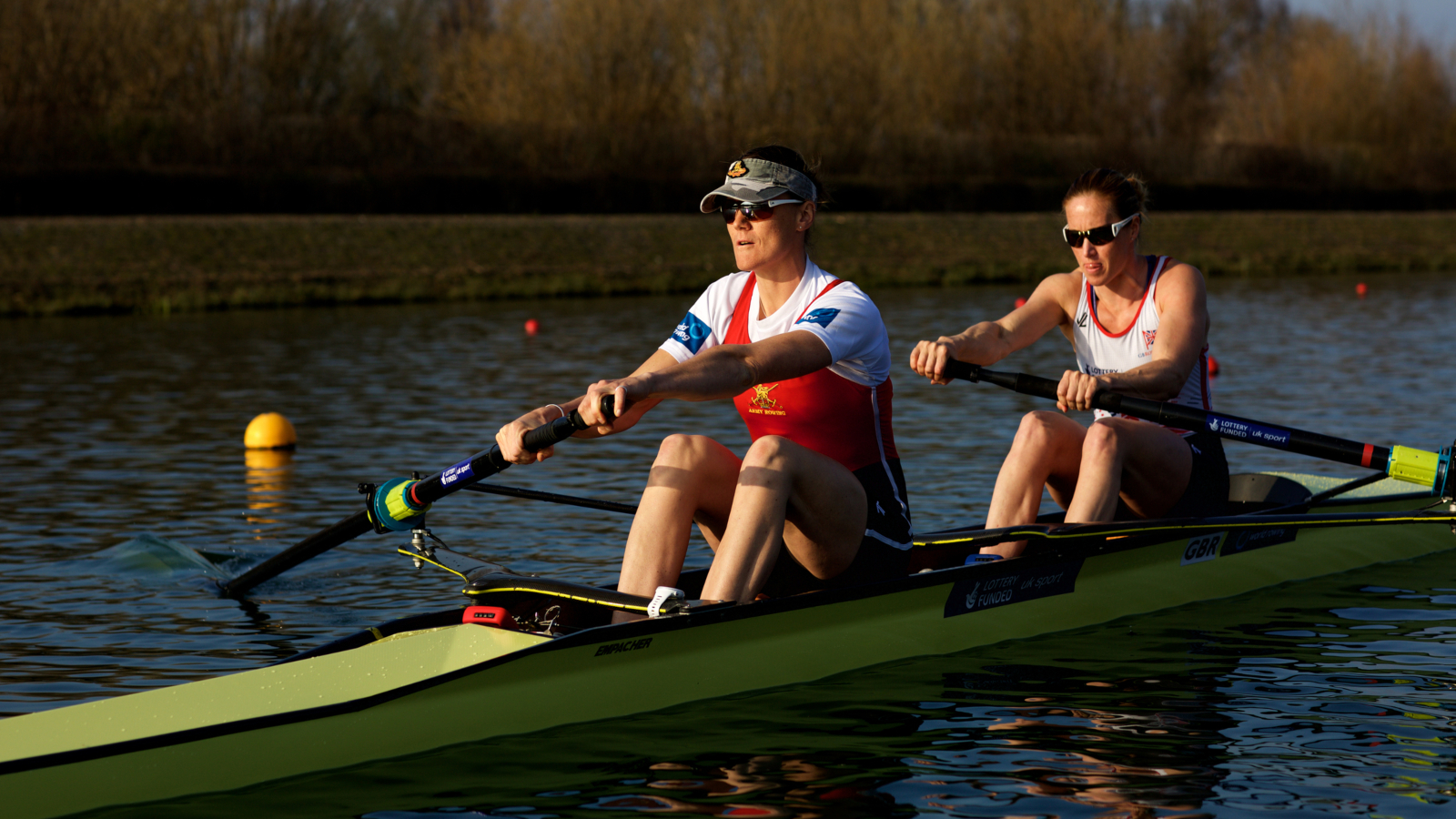
Helen Glover and Heather Stanning pictured in 2016 (c) Naomi Baker
With the sporting world in lockdown due to COVID19, World Rowing were unable to hold the Rowing World Cup series this season. But, in its place they created the World Rowing Fantasy Cup.
Over the course of three weekends when the “real” events should have been taking place, World Rowing pitted some of the greatest crews and scullers of recent times against one another, with the public voting for the winner. Last weekend this series culminated with the finals, racing that featured a strong British presence. So, how did GB’s finest get on and where there any surprises? Daniel Spring reviews the results.
Women’s pairs
Great Britain’s double Olympic champions Helen Glover and Heather Stanning squared up against the Romanian duo of Georgeta Andrunache and Viorica Susanu. Between them these two pairs have won the last four Olympics.
Unlike some of the events in the Fantasy World Cup, these two pairs have actually raced each other for real, with the British coming out on top at the London Olympics. With a winning streak of 39-races, the British are undoubtedly the best women’s pair ever, and took the victory in the public vote by a margin of 2852 votes to 2373.
Men’s pairs
This was perhaps the most eagerly awaited event, with four legends of the sport squaring up to each other. Representing Great Britain, with “just” the nine Olympic gold medals between them, was Sir Steve Redgrave and Sir Matthew Pinsent. Up against them were the most dominant crew in the history of World Rowing – Eric Murray and Hamish Bond of New Zealand.
I’d still give it to the Kiwis, but I reckon the British would’ve run them close!
The Kiwis never lost a race in the pair at a World Rowing event over an eight-year streak which lasted for 69 races. In the end, the result was a comfortable margin for the Kiwis with a 4874 to 1668 difference. In the race of the “legends”, the legend of the Kiwis was just that bit stronger than the British.
I reckon the result should’ve been close. I’d still give it to the Kiwis, but I reckon the British would’ve run them close!
Men’s eights
This event pitted two old rivals against each other – Great Britain and Germany. The British were represented by the crew that won gold at the Rio Olympics; the Germans were fielding the reigning world champion crew.
We woz robbed!
Personally, I think this match-up should have been no contest – both the British and German crews from the Rio Olympics are, in my opinion, faster than the 2019 German boat. Plus, the Germans may have won the last three world championship titles, but they have yet to win the Olympic gold.
But, in the voting public’s view, the Germans gained the most support though by the narrowest of margins, just 300 votes separating the crews with the Deutschland-Achter polling 3495 votes to 3195 for the British.
We woz robbed!
PR2 para mixed double sculls
The final GB representation in the Fantasy World Cup finals were the mixed double of Lauren Rowles and Laurence Whiteley. They faced off against the crew they beat into silver at last year’s World Championships, Annika van der Meer and Corne de Koning of the Netherlands.
The British are the reigning Paralympic champions, but the Dutch were unbeaten throughout 2017, 2018 and 2019 until they met the British in the final of the World Championships. In the Fantasy World Cup the British took the honours once again with 3146 votes to 2009.
Men’s single sculls
No British representation in this, instead a fascinating virtual showdown between current and potential future legends of the event.
On the one side was New Zealand’s reigning Olympic champion Mahe Drysdale. On the other, the young German wunderkind, Olli Zeidler, winner of the 2019 World Championships. Whilst Zeidler is an outstanding talent for the future, Drysdale in his prime is probably the greatest sculler of all time. The results of the public vote bore this out with Drysdale putting the youngster in his place by 5654 votes to 2273.
Women’s single sculls
Another case of the reigning champion against a true legend of the sport. Sanita Puspure of Ireland won the World Championships in 2019, but she faced Ekaterina Karsten of Belarus. Karsten has been racing internationally since 1991 (when Puspure was just 10 years old). In that time, she’s collected five Olympic medals – including two golds – and an astonishing 16 world championship medals. In the end the result was a comfortable win for Karsten posting 3912 votes to Puspure’s 1836.
Drysdale in his prime is probably the greatest sculler of all time
Women’s eights
One of the surprises in this event was the USA losing in the early rounds – instead it was the Romanian crew of 2004 who took on the 2019 New Zealanders. The Kiwis are an outstanding unit and will very much be in the mix at Tokyo, but against the Olympic pedigree of the Romanians they were always going to be up against it.
The Romanians ran out 3347 to 2537 winners.
Lightweight men’s double sculls
Earlier in the Fantasy series, the Danes, Mads Rasmussen and Rasmus Quist, knocked out their old adversaries Zac Purchase and Mark Hunter. In the series final they faced the Poles Tomasz Kucharski and Robert Sycz , the Olympic champions from 2004. In the end the Danes, Olympic champions from 2012, ran out comfortable winners by 4013 votes to 1916.
Now I can’t wait for the real thing to start again – whenever that may be!
Lightweight women’s double sculls
Great Britain’s 2012 Olympic champions Sophie Hosking and Kat Copeland were eliminated in round one by the reigning world champions Zoe McBride and Jackie Kiddle of New Zealand– a bit of a surprise as I reckon the Brits are the stronger crew. But the Kiwis progressed to the final where they met the Romanians, Constanta Burcica and Angela Alupei-Tamas.
The Romanians dominated this event at the turn of the century, winning gold in both Sydney and Athens, but somewhat surprisingly it was the Kiwis who emerged victorious by 4187 to 1917 – maybe voters had short memories?
So, overall Great Britain emerged from the series with two golds and two runner-up places. It’s been a fun idea from World Rowing to keep us rowing fans entertained whilst in lockdown.
Now I can’t wait for the real thing to start again – whenever that may be!
Follow Daniel Spring on Twitter at @fatsculler


